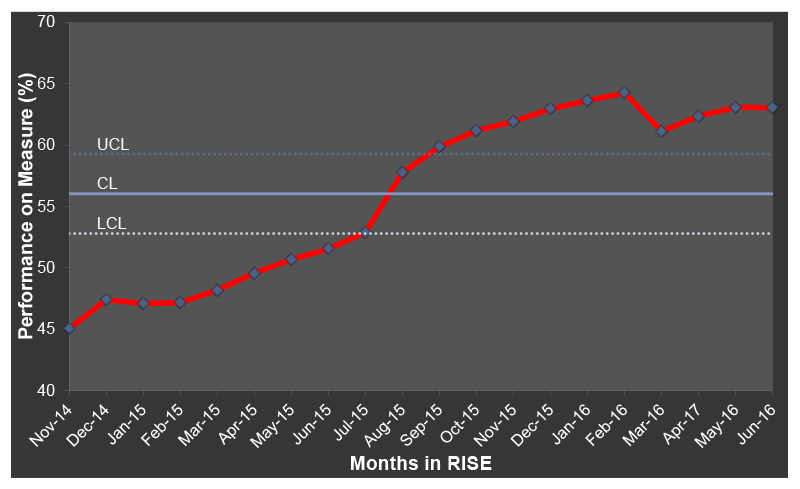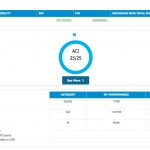The RISE Registry data are robust and can be used for many different kinds of investigations, such as comparative-effectiveness research, post-market surveillance,
medication patterns/biosimilars, quality improvement, outcomes research and value-based care, to name but a few. The ACR has conducted some initial projects delving into RISE data.
In an article published in Arthritis Care & Research, the ACR reviewed, among other things, the demographics of and various diagnostic codes for RISE patients.1 In the article, the authors noted that although prevalent rheumatologic diseases are well represented in RISE, a registry strength is that it has a large amount of data on individuals with less common diseases, such as inflammatory muscle diseases and vasculitides. These data will be valuable in furthering our understanding of the natural history, treatment and outcomes of these conditions.
At the 2016 ACR/ARHP Annual Meeting, the ACR presented a poster on identifying and characterizing patients in the RISE Registry with systemic lupus erythematosus (SLE) or undifferentiated connective tissue disease (UCTD).2 It was determined that although diagnostic codes could be used to identify a large population of potential patients, disease classification for patients could be improved by including other data elements available through RISE, such as medications prescribed, laboratory tests, etc.
Efforts to refine phenotyping algorithms for rheumatic diseases in RISE are ongoing, and we anticipate that disease characterization in RISE will become increasingly granular and accurate.
More recently, in data presented at a plenary session at the 2016 ACR/ARHP Annual Meeting and updated for a presentation at EULAR in 2017, the ACR evaluated the latest trends in average performance of practices on the quality measures in RISE over time.3 Practices participating in RISE have had significant improvements in performance on many quality measures. An example of this trend can be seen in Figure 2. RISE will allow rheumatologists to track their performance over time, positioning them to both succeed in the MIPS program and continuously improve the quality of care they deliver to their patients.

(click for larger image)
Figure 2: RA Disease Activity Measure Performance Chart
The ACR’s abstract examined data for 20 continuous months from the 44 practices that have been in RISE the longest. This chart shows their performance on the RA disease activity measure steadily improved over that time.
The ACR has done some illuminating and valuable initial work evaluating RISE data. It is clear that the trove of information collected through the registry is expansive and has the potential to vastly improve our understanding of how to provide the best quality of care for our patients. We hope to share even more discoveries from RISE data at the 2017 ACR/ARHP Annual Meeting.
Open for Business
The ACR looks forward to academic requests from researchers interested in publishing the results as part of a scientific presentation or manuscript and non-academic requests from those interested in the results for internal reference or use in marketing or advocacy materials. More information on available RISE data and how to request its use can be found by going to the RISE for Research section. If you have questions, contact [email protected]. Let the dialogues begin!



